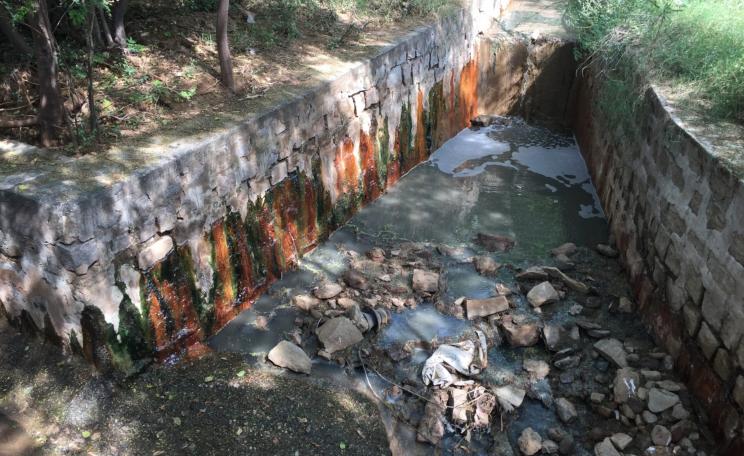You could be forgiven for thinking lawyers have an easy ride – the huge pay packets, boozy lunches and prestige that comes with bringing to justice those guilty of serious wrongdoing (or successfully defending those falsely accused).
Television dramas such as This Life, which famously followed the professional and personal lives of a group of ambitious, drinkfuelled and sexually charged young lawyers, have done little to dispel such stereotypes.
Yet in many parts of the world, such a career choice comes at a heavy price. In South and Central America, south-east Asia, as well as in China and former USSR states, legal advocates face harassment, death threats, incarceration, violence and even murder.
Powerful criminal syndicates, corrupt government officials, Big Business, the army and paramilitary groups make formidable enemies for those championing human rights and – increasingly – environmental justice.
With its recent history of conflict between the authorities (backed-up by paramilitaries) and left-wing rebels, as well as widespread corruption, rampant environmental exploitation, drug-trafficking and a culture of impunity, Colombia has become the world’s most dangerous place to be a lawyer.
The statistics are shocking: more than 400 Colombian lawyers have been murdered since 1991, with numerous instances of harassment, threats and violent attack. No-one has been prosecuted for the killings. The problem has become so acute that the Law Society of England and Wales recently took part in a fact-finding mission to investigate the situation.
The group’s report highlights how members of lawyers collective Corporación Colectivo de Abogados José Alvear Restrepo (CCAJAR) are forced to travel in armoured cars, wear bulletproof vests and live in houses fitted with bulletproof glass. A CCAJAR founding member was murdered; others have been forced into exile.
Years of conflict and land-grabbing have displaced 3.5 million Colombians. Strategic land is frequently seized by paramilitaries or the army, or exploited for use as cattle ranches, plantations for cash crops such as palm and sugar cane, or for mining.
In Santander province, oil extraction coincided with an increase in paramilitary and army activity. Since the arrival of paramilitaries, as many as 40,000 local people have been reported killed, 500 ‘disappeared’ and more than 100,000 forced to flee.
Lawyers fighting to prevent the persecution and eviction of indigenous groups and peasant farmers in the region – or trying to negotiate their return – have themselves been targeted.
Members of the Corporación Colectivo de Abogados Luis Carlos Pérez (CCLAP), named after the murdered human rights campaigner, say the situation has become so bad they have been forced to request protection from overseas NGOs. CCLAP lawyers have received death threats and prominent members have been forced to leave the area.
Members of lawyers collective Yira Castro, which specialises in human and land rights issues, have repeatedly been threatened by paramilitary outfits, followed by government agents, had offices broken into and computers seized, and been subjected to covert surveillance, including email interception.
Yira Castro has been instrumental in fighting plans by the Colombian government to hand over 20,000 hectares of land in northeast Antioquia to develop a vast goldmine. Campaigners claimed it would cut through land used for food production, small-scale timber harvesting and community events.
In 2007, Yira Castro lawyer Irene López returned home to find a note pinned to her house saying, ‘You are going to die on 24 December’. A year later, she received an email that threatened her if Yira Castro continued to work with Rigoberto Jiménez, a leading advocate for displaced farmers. The notorious paramilitary group behind the email, Águilas Negras, claimed it had received orders to kill Jiménez ‘as soon as possible’.
It is not only in Colombia that champions of human rights and environmental protection are being targeted. In Peru, congresswoman and lawyer María Sumire has been persecuted for campaigning on indigenous rights, and was hospitalised after being attacked.
In Bolivia, cattle ranchers and loggers threatened to burn lawyer Cliver Rocha alive because of his work on behalf of the country’s Centre for Legal Research Studies and Social Research. Rocha has also been attacked, and an armed mob ransacked his offices in Riberalta.
In Papua New Guinea, following investigations that exposed how government complicity and corruption was enabling illegal logging, lawyer Anne Kajir was brutally attacked, and has had her house broken into.
Amnesty is currently calling for the release of Chen Guangcheng, a blind human rights lawyer who has spent more than 1,000 days in prison. Having investigated China’s family planning policies, he claims government officials have been involved in sterilisations, forced abortions and arbitrary detentions.
Hou Wenzhuo is among other Chinese lawyers to be persecuted. Her work on land disputes and farmers’ rights saw her put under house arrest, harassed by police, and have her office closed down by the authorities. Under threat, she was forced to flee to the US.
China is desperate to curtail the growth of the so-called ‘rights protection movement’ seeking to ensure legal rights are enforced. The country suffers from chronic corruption and poor administration, meaning that property and land rights, as well as environmental protection laws, are frequently flouted and abused. The leaders of this new movement are prime targets for the Chinese regime.
This Life this is not.
Andrew Wasley is a journalist with investigative agency Ecostorm and a producer for the Ecologist Film Unit







